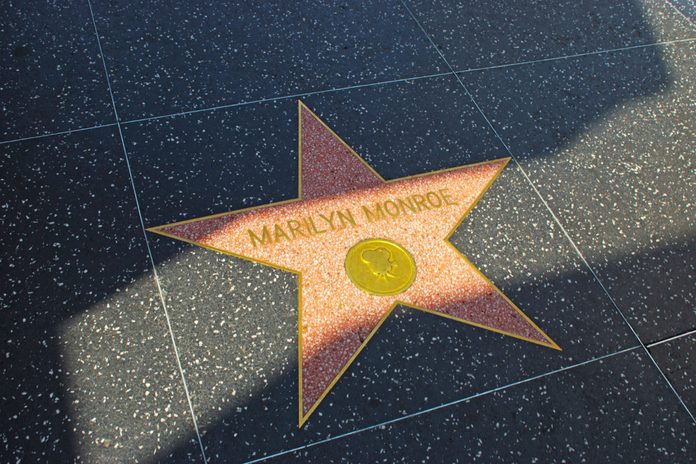
You can read Marilyn Monroe’s FBI file online, not to mention your own
The Vault, an FBI reading room of more than 6,700 documents, contains details of investigations into Marilyn Monroe, Dick Clark, Joe Paterno, Steve Jobs, and many more people famous for everything from music and movies to organized crime. Thanks to the Freedom of Information Act, if you’re curious about the dirt the FBI has on you, you’re able to request the files. These are 13 celebrities you’d never guess had FBI files.

Even with no arrests, your fingerprints are probably on file in Clarksburg, West Virginia
If you’ve had your fingerprints taken as part of a background check to, say, get a driver’s license or a job or to buy a gun, the results likely live in the FBI’s Integrated Automated Fingerprint Identification System (IAFIS). This database of more than 100 million fingerprints is located in a huge “data campus” in Clarksburg, West Virginia, about 250 miles west of the main FBI headquarters in Washington, D.C. Even with so many on file, according to the FBI its system can match a set in about 12 minutes. Don’t miss the best way to earn someone’s trust according to the FBI.
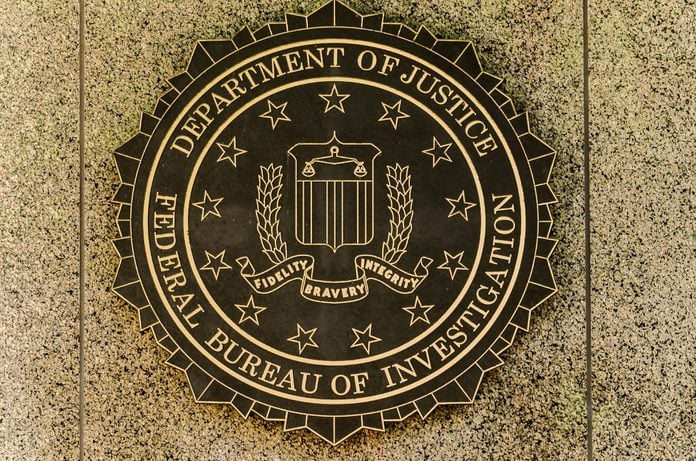
It’s not a deal-breaker if an agent has a past history of recreational drugs
Candidates are automatically disqualified if they smoked pot in the last three years, or used another illegal drug in the last ten years. They’re also dinged for having worse than 20/200 uncorrected vision. To become an FBI Special Agent, candidates must be between the ages of 23 and 37 and successfully complete a battery of physical tests including a timed 300-meter sprint (women must run it in less than 65 seconds to qualify; men, 55 seconds) and push-ups (women must do at least 14; men, 30). If they have training in any of the 12 “critical skills,” including accounting, finance, or law, their application will move to the top of the pile. These are 10 facts you never knew about the Secret Service.

The criminals on the FBI’s Most Wanted list? They’re often chosen based on looks.
The Most Wanted list, created by J. Edgar Hoover in 1950, identifies people wanted for kidnapping, murder, theft, and other crimes. But according to New York Times reporter Michael S. Schmidt, “bureau officials…[try] to select…dangerous fugitives who…could be recognized by the public because they have distinctive physical features,” such as a scar, multiple tattoos, or a strangely shaped face. See how this ordinary man helped the FBI find the most wanted man in the country.

The FBI didn’t go digital until 2012 because of computer coding issues
You might think that the bureau responsible for national security would use the most sophisticated computers available. But until 2012, the FBI was still using paper files to track cases. The group had planned to switch to a new $425 million electronic system in 2009, but there were problems with computer coding. Finally, in August 2012—two and a half years late, and $26 million over budget—the country’s premier law enforcement agency began using the new machines. These are the 16 strangest unsolved mysteries of all time.

They spent a year investigating the song Louie Louie
Remember the song Louie Louie? The song was written by Richard Berry in 1955 and later made popular by The Kingsmen and featured in the films American Graffiti and Animal House. It was also the subject of an FBI investigation that ran for more than two years during the mid-1960s. The concern: Whether the lyrics were dirty and pornographic. Ultimately, after spending countless time and money, the G-Men determined the lyrics were unintelligible. Check out the strangest unsolved mysteries from each state.

They were really suspicious of John Lennon
Here’s one you may have heard. In 1971, Beatles member John Lennon was placed under surveillance by the FBI. Why? Because he was writing such anti-war songs as “Give Peace a Chance.” Here are some more crazy conspiracy theories throughout history that turned out to be true.

Walt Disney was an informant
“From 1940 until his death in 1966, Walt Disney served as a secret informer for the Los Angeles office of the Federal Bureau of Investigation, according to documents that have come to light under the Freedom of Information Act,” the New York Times reported in 1993. The subject matter was “un-American activities,” and Disney reportedly gave up the names of several Hollywood people who were suspected of being Communists. He did such a good job, he was named “full Special Agent in Charge Contact” in 1954. Don’t miss these secrets the CIA doesn’t want you to know.
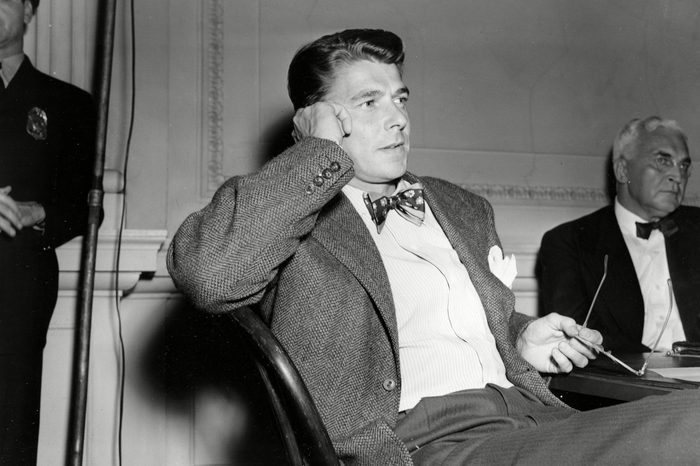
So was Ronald Reagan
While president of the Screen Actors Guild in 1947, Ronald Reagan was designated “Source T-10” by the FBI, which meant he was a confidential source with the code name “T-10,” the New York Times reports. “Documents obtained through the Freedom of Information Act indicate that Reagan and his first wife, actress Jane Wyman, provided federal agents with the names of actors they believed were Communist sympathizers,” according to Time in a 1985 story. Check out these outrageous projects the government used our tax dollars to pay for.
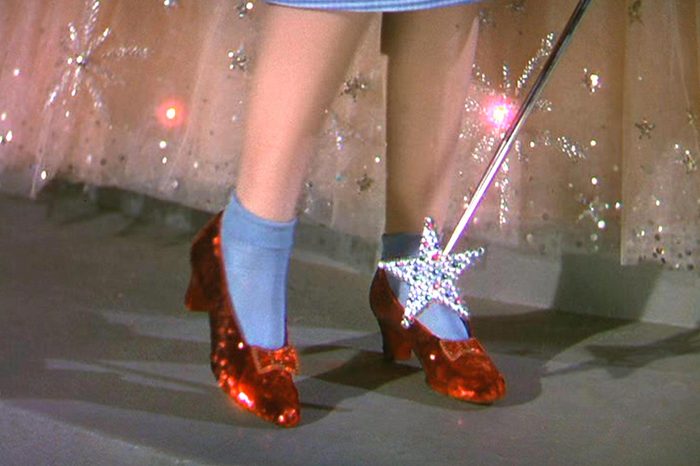
It took them a decade to locate Dorothy’s ruby slippers
A pair of ruby slippers worn by Judy Garland in the film The Wizard of Oz was stolen from the Judy Garland Museum in Minnesota in 2005. One of at least four pairs used in the film still in existence, it must have been important: It took more than ten years of searching and an actual sting operation for the FBI to finally locate the purloined pair. Check out some more secret government projects you never knew about.
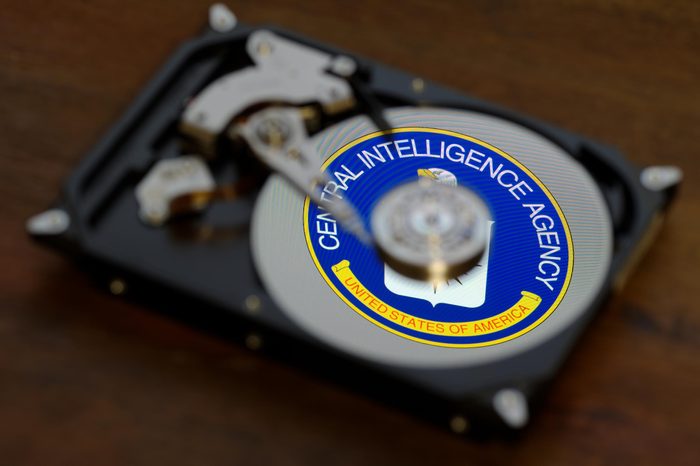
They don’t always play nicely with the CIA
Among the many controversies related to the 9/11 attacks is the fact that the government doesn’t like to admit that the CIA doesn’t always know how to share with the FBI. “It’s horrible. We still don’t know what happened,” Newsweek quotes one of the FBI’s lead counterterrorism agents as saying. Here are some more things they’re still not telling you about 9/11.

They investigated ESP
The FBI once spent time and money investigating extra-sensory perception (ESP). According to the FBI Vault, “ESP is considered a perception of information about events beyond what may be discerned through the five physical senses or deduced from past experience or knowledge.” Based on concerns ESP could be used as part of international spying, the FBI spent more than three years looking into the phenomenon before they concluded there was “no scientific support” for their concerns.

If you’re lying, they’ll know…
If there’s one thing FBI agents can tell about you, it’s when you’re lying. At least one 23-year FBI veteran was willing to share with INC her top eight secret ways to spot liars, which you can read here. Learn the sneaky ways FBI agents protect their homes, too.
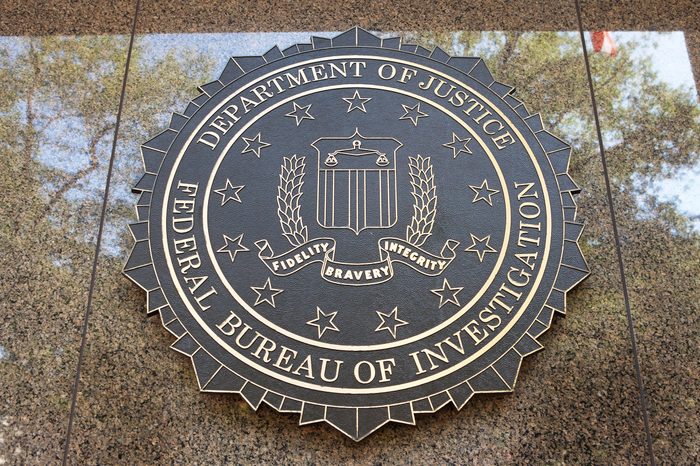
…except when they don’t
As bright as they are about spotting liars, they weren’t able to discern that one of their own, Field Agent Terry Albury, had been betraying national security secrets to The Intercept, which bills itself as “adversarial journalism.” While Albury claimed he was a “whistleblower” just trying to do the right thing, a judge sentenced him to prison for putting the country’s security at risk, according to the New York Times.

They’re not above the law
In October 2018, FBI employees from a number of offices abroad had their jobs terminated following allegations of misconduct (including cavorting with prostitutes), reports Clearance Jobs, a website that provides information on people whose jobs require a security clearance. It was an “avoidable embarrassment (not only to the Federal Bureau of Investigation, but to the U.S. government),” according to Clearance Jobs. Learn about some bizarre things that the government is allowed to do.

They know the secret to successful negotiations
Ex-FBI negotiator Chris Voss gave away the number-one secret to getting your way in a negotiation. He told CNBC that there’s “power in patience”: “You’ve got to let the other side talk first, and you’ve got to make them feel in control.”

Knowing your family tree could cost you your privacy
If you’ve ever had your DNA analyzed by a genealogy service, there’s a possibility that your DNA profile could be used against you in a criminal investigation. That’s how the FBI was finally able to solve the cold case of the Golden State Killer: With the help of DNA results the FBI acquired from GEDMatch, a Lake Worth, Florida-based genealogy site. Read on for 11 more fascinating facts you never knew about the FBI.
Sources
- FBI: “IAFIS”
- The New York Times: “To Replace Bin Laden on Most Wanted List, a Teacher in a Pornography Case”
- Snopes: “Are the Lyrics to ‘Louie, Louie’ Obscene?”
- The New York Times: “Disney Link To the F.B.I. And Hoover Is Disclosed”
- FBI: “Stolen Ruby Slippers from The Wizard of Oz Recovered”
- Time: “Hollywood: Unmasking Informant T-10”
- Newsweek: “CIA and Saudi Arabia Conspired to Keep 9/11 Details Secret, New Book Says”
- Inc.: “An FBI Agent’s 8 Ways to Spot a Liar”
- The New York Times: “Ex-Minneapolis F.B.I. Agent Is Sentenced to 4 Years in Leak Case”
- CNBC: “Former top FBI negotiator: This is the No. 1 secret to getting what you want”
- Market Watch: “Genealogy sites are Wild West of privacy — here’s what you give away with your DNA”
